MHCU’s Improvement Network
The focus of Moving Health Care Upstream’s Improvement Network is on supporting participating teams of health care organizations and their and community partners in employing strategies for population health management for young children and families into their local systems. The vision is an organized care system in which an array of organizations co-manage with families of young children their health needs. The aim of the Network is to support teams in developing a portfolio of services and supports that are intended to improve health and health equity within a population of young children and their families.
Teams participating in the MHCU Improvement Network represent a diverse configuration of partnerships between health care organizations and their community partners. The Improvement Network was intended to support participating teams as they work to: 1) Design risk-based care bundles to strengthen families with young children, based on shared insight into actionable influences on health for a population of families; 2) Identify what each partner will contribute reliably and over time; 3) Provide and co-manage this care; and 4) Use measures to track progress in population health management.
The MHCU Improvement Network includes 11 teams from the following locations: Central Coast (CA), East Palo Alto (CA), Long Beach (CA), Atlanta (GA), Boston (MA), Harlem (NY), Yonkers (NY), Cincinnati (OH), Columbus (OH), Dallas (TX), and Milwaukee (WI).
Improvement Network teams have been working on change concepts in order to: offer a disciplined approach to assessing family strengths and vulnerabilities, tailor care to meet family needs at all levels, better match their community needs and existing capacity of resources, and help all partners think of risk and then act in a shared way. Along the way, teams have been tackling the challenges of co-management of families and looking to remove barriers in communicating and sharing information across their partners. Teams have engaged families in the process along the way, testing strategies to incorporate family voice in design and feedback mechanisms as a way to find out what works and what doesn’t and to determine what families want. Teams have also been testing how to capture progress and define the measures that can capture progress within their own existing data and tracking systems. Communicating their story in simple language that will allow them to effectively engage other partners in their effort is another key facet of this work.
CLICK HERE to view the Aim Statements of MHCU Improvement Network teams.
Working as a System
The Learning Network participants began their work in 2016, meeting both virtually and in person to share what they were testing and learning. Their experiences to-date of working across diverse service sectors and systems are shared in the “Working as a System” guidebook.
“Working As a System” is a resource for taking a “learning-by-doing” approach to addressing the social influences on health. The guidebook describes the progress of eight cross-organization partnerships, in which diverse organizations sought to work together and be accountable for meeting the medial and social needs of a shared population of families. These partners included health care providers, legal services, behavioral health, youth wellness, food programs, and more. The guidebook describes the experiences of partners as they sought a shared working definition of health and learned how to work collectively on family priorities and health goals. This guidebook is intended to help other communities, organizations, agencies, and all interested in working across care systems in partnership with families learn from the experiences of Improvement Network teams.
The guidebook was developed by the Business innovation Factory in partnership with MHCU. It contains practical tools and tips for other community partnerships that are on the journey of working across organizations to achieve a population level outcome. The guidebook emphasizes family-centered design, shared learning processes, and shared accountability among local partners. It draws from the experiences of the risk stratification working group that some MHCU Improvement and Learning Network team members participated in prior to the launch of the Improvement and Learning Network and provides a blueprint to engage in conversations across diverse organizations in order to design a new family experience.
CLICK HERE to access the Working as a System guidebook.
